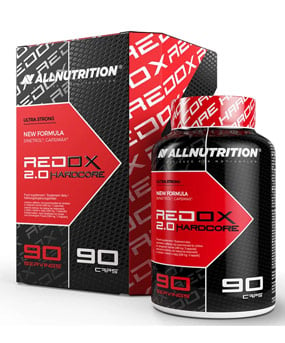za długi żeby go tłumaczyć ale streszczę sens w paru słowach; wiele badań np ostatnie przeprowadzone w Australii na 1900 kobietach wskazuje że żarcie witamin w formie syntetycznej nie tylko nie daje pozytywnych rezultatów ale może być po prostu szkodliwe..
Vitamin Mania: The Truth about Antioxidants
By Christopher Wanjek, LiveScience’s Bad Medicine Columnist
Studies showing the negative or null effects of vitamins supplements are so common that it is surprising doctors still find these studies to be surprising. Vitamins are not as simple as A-B-C.
The latest bit of confusion appears in the April 27 issue of the New England Journal of Medicine. Doctors in Australia provided nearly 1,900 pregnant women with either supplements of vitamins C and E or a placebo to see whether the vitamins would lower the risk of developing high blood pressure during pregnancy. It didn't work.
Surprisingly, the doctors said, the vitamin group had a slightly higher rate of high blood pressure compared to the placebo group.
The levels of vitamins C and E were greater than those found in an ordinary multivitamin tablet-1,000 milligrams of C and 400 IU of E, or roughly 10 and 20 times the recommended daily allowance. In an editorial accompanying the study, doctors said that supplements at these levels should not be prescribed routinely.
Americans spend about $2 billion a year on vitamins C and E, along with beta carotene (a precursor of vitamin A) and selenium, according to Nutrition Business Journal. These are the most popular antioxidants, a class of chemicals said to cure just about everything.
The trouble is, science can't seem to support the bad movie script created by the vitamin supplement industry.
No simple movie plot...
Here's the plot, a battle between good and evil: Rogue chemicals called free radicals roam about the body like brazen street punks, smashing cellular walls and roughing up innocent DNA molecules, causing cancers and the diseases of middle- and old-age. Their flagrant disregard for the law would continue unchecked if it weren't for swashbuckling antioxidants swooping in on the wings of vitamin supplements, disarming the free radicals of their menacing electrons and converting them into respectable molecular citizens.
But the body, it seems, is not governed by a Hollywood "B" script. Free radicals are as good as they are bad, and too many antioxidants may do the body harm.
It is true that antioxidants serve as sort of a rust protector for the body, stopping a process called oxidation. Important molecules in the body, such as those that form artery walls, become oxidized when they lose an electron. Once oxidized, they become unstable and easily break apart.
The culprit, without a doubt, is the free radical.
Free radicals are highly reactive molecules or single atoms with unpaired electrons looking for a mate. So they steal an electron from the first thing they encounter, perhaps a cell wall or DNA. As free-radical damage mounts, cells can no longer perform properly. Disease sets in. An excess of free radicals has been cited in cardiovascular disease, Alzheimer's disease, Parkinson's disease and cancer.
Aging itself has been defined as a gradual accumulation of free-radical damage.
Yet free radicals are necessary for life. The body's ability to turn air and food into chemical energy depends on a chain reaction of free radicals. Free radicals are also a crucial part of the immune system, floating through the veins and attacking foreign invaders.
Hydrogen peroxide is a prime example of a free radical. Your blood actually contains trace amounts of hydrogen peroxide, an internal germ fighter. In fact, you could not fight bacteria without free radicals.
Good luck
How antioxidants work is an utter mystery, which explains the contradicting results of very large and well-conducted studies in the past decade showing, for example, that vitamin E slowed the progress of coronary artery disease but increased the risk of a heart attack.
One thing that studies do reveal is that a diet rich in antioxidants, as opposed to supplements, is associated with lower rates of cancer and circulatory disease. Richard Veech of the National Institute on Alcohol Abuse and Alcoholism, whom I interviewed a few years ago, sums it up best, I think:
"People don't want to exercise," he said. "They don't want to eat healthy food. They don't want to stop drinking; they don't want to stop smoking; they don't want to stop having dangerous sex. They want to take a pill. Well, good luck."





 Krzysztof Piekarz
Krzysztof Piekarz








